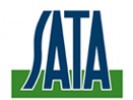Filter interviews by
Allied Jb Friction Interview Questions and Answers
Allied Jb Friction Interview Experiences
6 interviews found
I applied via Approached by Company and was interviewed in Aug 2022. There were 3 interview rounds.

(3 Questions)
- Q1. About your Past experience and jobs responsibility ,work knowledge , Machine related Molding process , material preperation process ,job responsibilities and shift handling, production planning, Technical ...
- Q2. About job Responsibilities and Molding production engineering
- Q3. How to improve productivity and control Rejection
- Ans.
To improve productivity and control rejection, focus on process optimization, employee training, and quality control measures.
Analyze current production processes and identify areas for improvement
Implement lean manufacturing principles to eliminate waste and increase efficiency
Provide regular training and development opportunities for employees
Establish quality control measures to catch defects early and prevent rejec...
(2 Questions)
- Q1. What is your basic knowledge and strength
- Q2. Work cultures and company management
Interview Preparation Tips
Production Engineer Interview Questions asked at other Companies
I applied via LinkedIn and was interviewed in Jul 2023. There were 2 interview rounds.
(1 Question)
- Q1. Introduction and technical questions from department head
(1 Question)
- Q1. Last experience questions put
Diploma Trainee Engineer Interview Questions asked at other Companies
I applied via Naukri.com and was interviewed before Dec 2023. There were 2 interview rounds.
(2 Questions)
- Q1. Family related questions
- Q2. Technical questions related to qc department
(1 Question)
- Q1. Previous experience related and technical questions
Interview Preparation Tips
Quaity Control Engineer Interview Questions asked at other Companies
I applied via Walk-in and was interviewed before May 2022. There were 3 interview rounds.

(1 Question)
- Q1. General HR Questions like introduction
(1 Question)
- Q1. In Technical Round they'll Ask about questions regarding your background or normal technical questions related to manufacturing industry
Production Engineer Interview Questions asked at other Companies
Allied Jb Friction interview questions for popular designations
I applied via Naukri.com and was interviewed before Jul 2021. There were 2 interview rounds.
(1 Question)
- Q1. Tell about previous profile
(1 Question)
- Q1. 12 hr shift here are you comfortable
Interview Preparation Tips
Supervisor 1 Interview Questions asked at other Companies
Interview Questionnaire
2 Questions
- Q1. Only general introduction
- Q2. Job responsibilities only
Production Engineer Interview Questions asked at other Companies
Top trending discussions






Interview questions from similar companies

An aptitude test is designed to assess an individual's ability to perform certain tasks or react to a range of different situations. These tests are often used by educational institutions and employers to evaluate potential candidates' skills, talents, and potential for success in a specific role or academic program. Here are some key details about aptitude tests:
1. **Purpose**: Aptitude tests are used to measure a variety of skills, including logical reasoning, verbal ability, numerical skills, and spatial awareness. They help to identify strengths and weaknesses and predict future performance.
2. **Types**:
- **Verbal Reasoning**: Assesses understanding and reasoning using concepts framed in words.
- **Numerical Reasoning**: Tests ability to work with numbers, including basic arithmetic, data interpretation, and logical problem-solving.
- **Abstract Reasoning**: Evaluates the ability to identify patterns, logical rules, and trends in new data.
- **Mechanical Reasoning**: Measures understanding of mechanical and physical principles.
- **Spatial Reasoning**: Assesses the ability to visualize and manipulate objects.
3. **Format**: Aptitude tests can be multiple-choice, true/false, or involve practical problem-solving tasks. They are often timed, with specific sections dedicated to each type of reasoning.
4. **Preparation**:
- **Practice Tests**: Taking practice tests helps familiarize with the format and types of questions.
- **Study Guides**: Reviewing basic concepts in mathematics, grammar, and logical reasoning.
- **Skills Development**: Enhancing skills through puzzles, reading, and other related activities.
5. **Usage**:
- **Recruitment**: Employers use aptitude tests to screen job applicants and find the best fit for a role.
- **Education**: Schools and colleges use these tests for admissions, placement, and identifying areas for student improvement.
- **Career Counseling**: Helps individuals understand their strengths and areas for improvement, guiding career choices.
6. **Scoring**: Scores are typically presented as percentiles, showing how a test-taker compares to a norm group. Higher scores indicate better performance relative to the norm group.
If you have specific questions about a certain type of aptitude test or need preparation tips, feel free to ask!
(2 Questions)
- Q1. Tell me about yourself.Tip: Provide a brief overview of your professional background, focusing on experiences relevant to the job you're applying for. Highlight your key achievements and skills.
- Q2. Know YourselfAssess and interest.
Interview Preparation Tips

I applied via Naukri.com and was interviewed in Jul 2022. There were 3 interview rounds.

(2 Questions)
- Q1. What are the lathe machine?
- Ans.
Lathe machines are tools used for shaping and cutting materials such as metal and wood.
Lathe machines rotate a workpiece on its axis while a cutting tool is applied to shape it.
They can be used for various operations such as drilling, knurling, and sanding.
There are different types of lathe machines such as engine lathes, turret lathes, and CNC lathes.
Lathe machines are commonly used in manufacturing and metalworking i...
- Q2. Types lathe , types milling
GD is a discussion that tests the candidate skills such as leadership skills, commutation skills, social skills, behaviour, politeness, teamwork.
Interview Preparation Tips
- Tool Room
- Production
- Aoutcad
- Nx unigrphics
Work-life balance
Show Up early
Be confident
Ask for help
Enjoy
Challenge yourself. Say yes to the things that scare you.
Focus on your strengths. Focus on your strengths and use that as an advantage to capitalize on the tasks at hand.

I applied via Walk-in and was interviewed in Oct 2021. There were 4 interview rounds.
Interview Questionnaire
6 Questions
- Q1. Plz introduce your self.
- Q2. What is difference between petrol engine & diesel engine.
- Ans.
Petrol engines use spark ignition while diesel engines use compression ignition.
Petrol engines use spark plugs to ignite the fuel-air mixture, while diesel engines rely on compression to ignite the fuel.
Petrol engines typically have higher RPM (revolutions per minute) compared to diesel engines.
Diesel engines are more fuel-efficient than petrol engines.
Petrol engines are generally lighter and more compact than diesel e...
- Q3. Types of brakes
- Ans.
Types of brakes include disc brakes, drum brakes, regenerative brakes, and hydraulic brakes.
Disc brakes use calipers to squeeze brake pads against a disc rotor.
Drum brakes use brake shoes that press against the inside of a drum.
Regenerative brakes convert kinetic energy into electrical energy to recharge the battery.
Hydraulic brakes use fluid pressure to apply force to the brake pads or shoes.
- Q4. How many years or months of experience.
- Q5. Where are you stay in pithampur .
- Q6. Why are resign to previous company
Interview Preparation Tips

(2 Questions)
- Q1. Technical
- Q2. Production
Interview Preparation Tips
Allied Jb Friction Interview FAQs
Tell us how to improve this page.
Allied Jb Friction Interviews By Designations
Interview Questions for Popular Designations
Allied Jb Friction Interview Process
based on 14 interviews
Interview experience
Interview Questions from Similar Companies
Allied Jb Friction Reviews and Ratings
based on 82 reviews
Rating in categories
|
Production Engineer
28
salaries
| ₹3 L/yr - ₹7.1 L/yr |
|
Engineer
24
salaries
| ₹2.6 L/yr - ₹5 L/yr |
|
Assistant Manager
13
salaries
| ₹6 L/yr - ₹10 L/yr |
|
Senior Production Engineer
8
salaries
| ₹4.8 L/yr - ₹8.4 L/yr |
|
Assistant Manager - Production
8
salaries
| ₹7 L/yr - ₹12 L/yr |

ZF Steering Gear

Caparo Engineering India

Marelli

Enco Engineers Combine
- Home >
- Interviews >
- Allied Jb Friction Interview Questions













